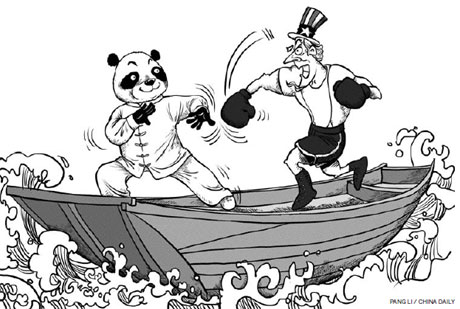Rebalancing puts brake on better relations

 The US rebalancing to the Asia-Pacific has unsettled relations with China, and distrust between the two countries has deepened since the United States started relocating its massive military assets to the region.
The US rebalancing to the Asia-Pacific has unsettled relations with China, and distrust between the two countries has deepened since the United States started relocating its massive military assets to the region.
On Tuesday, Admiral Samuel J. Locklear III, commander of the US Pacific Command, said that basing a large portion of the US navy in the Pacific should not be viewed as unusual.
Then on the same day, US Defense Secretary Chuck Hagel vowed that the US will maintain its military supremacy. However, his comment that the Pentagon is not taking the lead in this rebalancing shows that the US has finally realized that its overemphasis on the military component has been unwise.

Robert Ross, a professor of political science at Boston College and an associate at the John King Fairbank Center for Chinese Studies at Harvard University, wrote in Foreign Affairs magazine that the Barack Obama administration's rebalancing is not contributing to stability in Asia, instead it is making the region more tense and a conflict more likely. Military aircraft and naval ships now crowd the region's skies and water. The US risks getting involved in hostilities over islands that are strategically irrelevant and economically marginal to it.
US arms sales to the region has increased dramatically. The region, as Locklear admitted, has become one of the most militarized regions in the world.

































